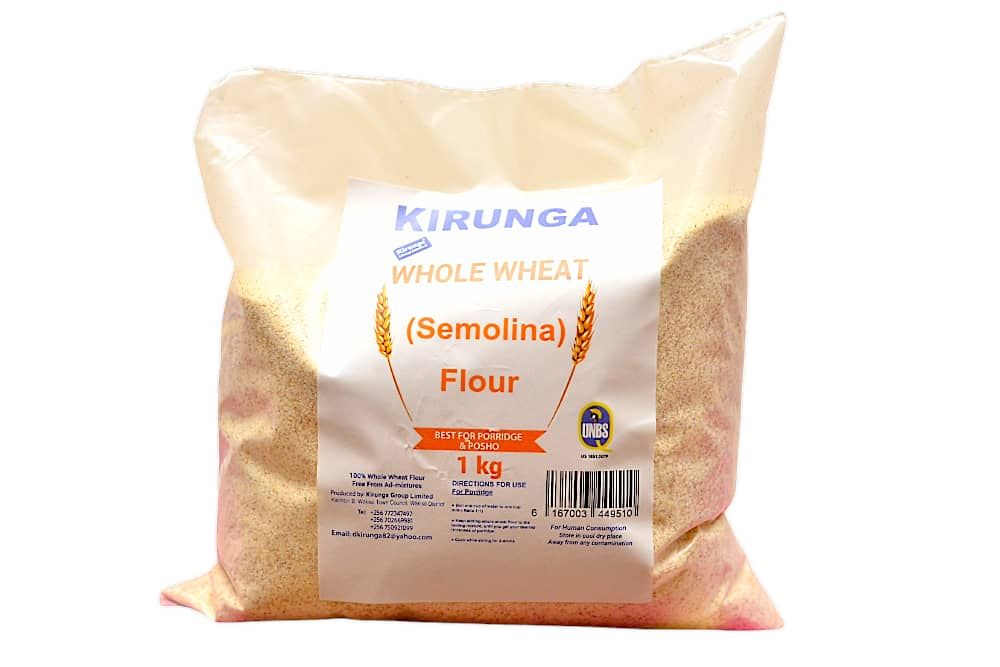Fibre-rich foods: Eating your way to total body wellness
“People shift diets when they understand the ‘why’, how fibre affects digestion, immunity, energy, and even children’s growth. Education must accompany availability. When people know better, they eat better.”
Fibre-rich staples such as whole wheat semolina, unrefined maize flour, millet, and beans are more than just traditional foods, they are powerful health tools.
__________________
In a world where fast food and refined products dominate the shelves, health experts are calling for a return to the basics, foods rich in fibre. Winnie Bagahwe, a certified nutritionist and team leader at Kirunga Groups Company Ltd, believes that fibre is not just about “keeping you regular,” but a vital nutrient for total body wellness.
“People shift diets when they understand the ‘why’, how fibre affects digestion, immunity, energy, and even children’s growth. Education must accompany availability. When people know better, they eat better,” Bagahwe says.
According to Bagahwe, fibre-rich staples such as whole wheat semolina, unrefined maize flour, millet, and beans are more than just traditional foods, they are powerful health tools.
These authentic, minimally processed foods help the body stay balanced, providing steady energy and preventing many lifestyle diseases.
“Fibre supports your microbiome, the good bacteria that power your immune system, mood, and metabolism, it’s like feeding the army inside your gut that defends you every single day,” she says.

Fibre does three important things: It cleans, balances, and nourishes
What fibre does for the body
Bagahwe says fibre plays multiple roles in keeping the body healthy.
“Fibre does three very important things: It cleans, balances, and nourishes,” she says, outlining several benefits, including:
- Supporting gut health: Fibre feeds beneficial gut bacteria, easing digestion and reducing constipation
- Regulating blood sugar, “When you eat fibre-rich food, sugar is absorbed slowly, reducing those dangerous spikes that lead to diabetes,” she says.
- Improves satiety, Fibre makes you feel full longer. Families who eat high-fibre meals tend to eat less junk food because they stay full on real, nutritious meals.
- Supports children’s development. When we combine fibre-rich foods with plant proteins like beans or groundnuts, children grow stronger and healthier. Their immunity becomes more stable.
She recommends that adults aim for 25–35 grams of fibre daily
The consequences of fibre deficiency
Bagahwe warns that many Ugandans are now consuming diets low in fibre and high in starch and refined sugar, a combination that she says is contributing to serious health challenges.
“We see more cases of obesity, diabetes, high blood pressure, and sluggish digestion, our grandparents lived longer and stronger because their food was not refined. They ate real grains, real vegetables, and real fruit.”
She encourages households to reintroduce natural staples.
“Unrefined maize flour, brown rice, and sweet potatoes are not backward foods, they are our future. They keep the doctor away,” she insists.
Food combinations matter
To better understand how to get the best out of what we eat, Dr Paul Kasenene, a medical doctor and certified functional medicine practitioner, says other than just eating food, one should strive to get the best out of a meal in terms of nutrients.
He says food combinations play a major role in whether you will get or inhibit the release of nutrients that your body needs.
Kasenene emphasises that eating a variety of foods that are low in fats and sugar but high in fibre not only benefits adults but also sets a healthy pattern for children.
“When parents eat whole grains, vegetables, and fruits regularly, children learn to enjoy them too. Healthy eating starts at home,” he says.
Bagahwe believes that protecting health begins in the kitchen, when you make fibre a family value, you are protecting your family’s future.
“Let every plate have some fibre, whether it’s beans, greens, millet bread, or fruit. Don’t let modern habits steal your health”, he advises.
“Fibre is not a luxury; it’s life. Every meal is a chance to heal your body or harm it. Choose foods that help you live well, not just eat well.”
From schools to homes, from workplaces to markets, Bagahwe hopes that fibre is the foundation of vitality, and understanding its value is the first step toward a healthier nation.